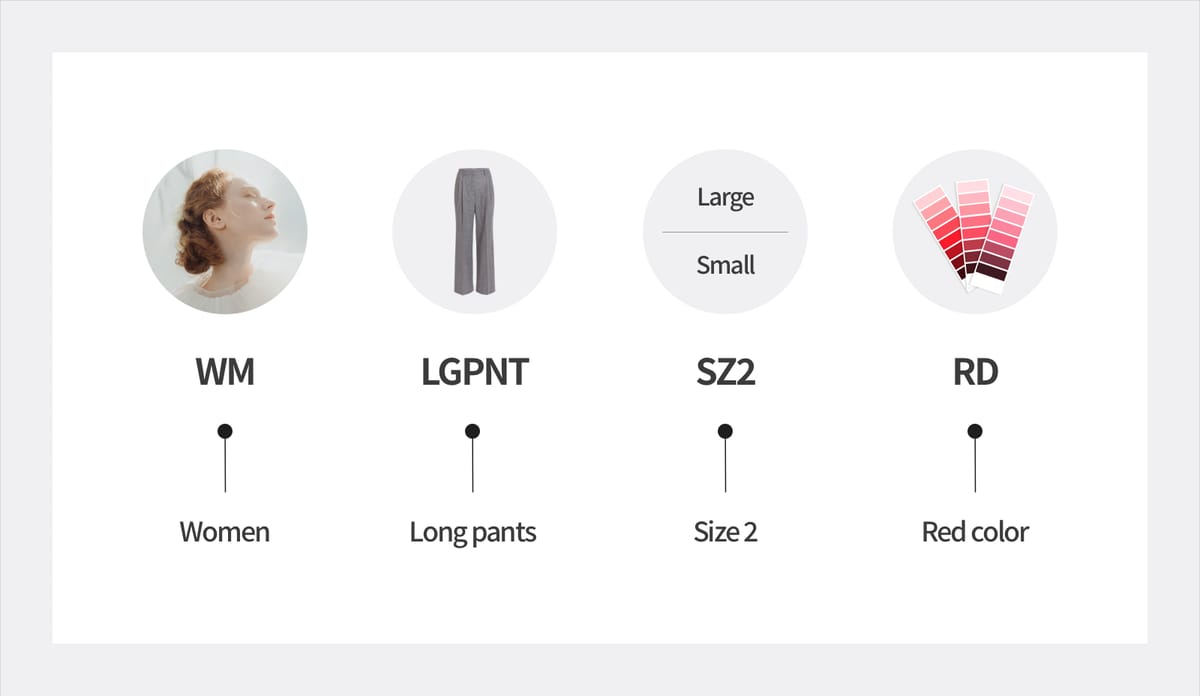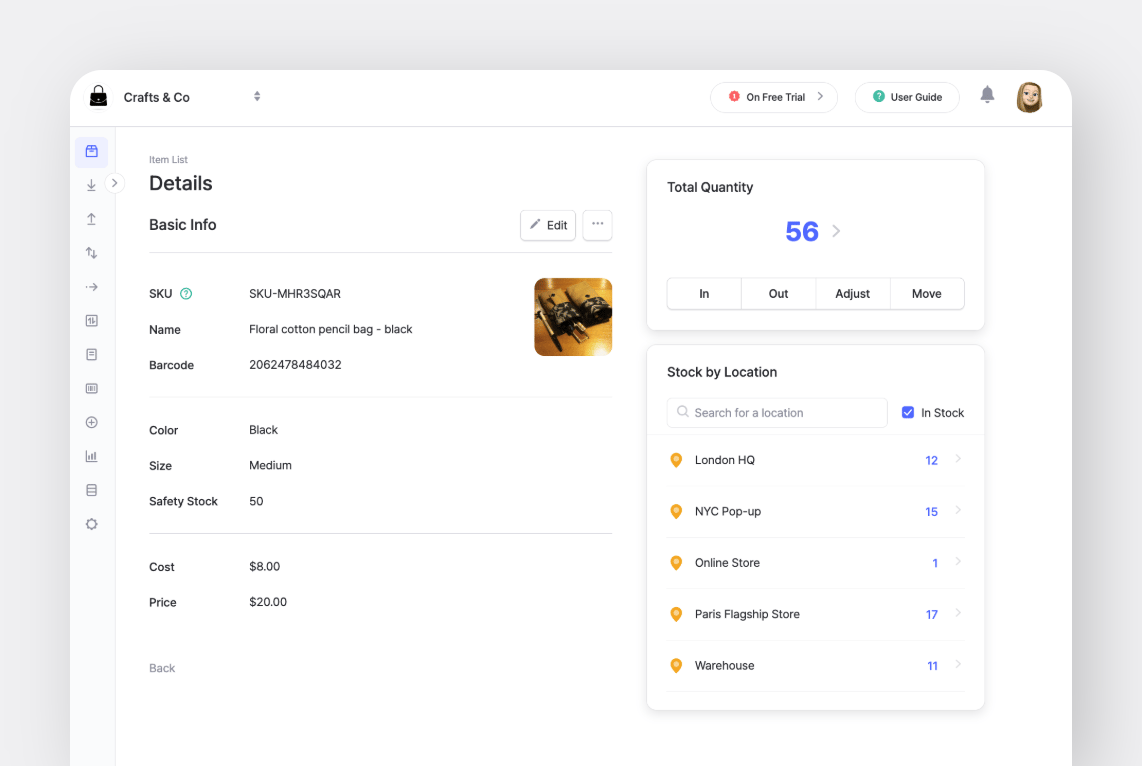What Is an SKU? Why It Matters in Inventory Management

With a growing business, you’ll notice that it’s hard to keep stock organized as you will have hundreds of different items in the warehouse. Assigning SKUs to the products you handle is a way to easily keep the inventory under control and this saves you time and effort in every step of your business operations.
In this article, we will explain what an SKU is, why it is essential to use SKUs in inventory management, and the benefits of using SKUs in a business.
What is an SKU?
A stock keeping unit (SKU) is a distinct code of an item for sale that you use to track the item in the inventory. Using some attributes associated with the item, such as color, size, manufacturer, materials, etc., SKU can help distinguish it from other item types. Using SKU codes is an essential part of inventory management as it allows every business to easily track the inventory items and their attributes in invoices, purchase/sales orders, and more.

How to set up SKUs
First, take a look at the following example:
WM- LGPNT- SZ2 - RD
Can you tell the meaning of it? There is no way you would figure out the meaning of this seemingly random combination of letters.
This is just an example of SKU code that can be either read by you or machines.
Let’s say your products include long pants for women, which are size 2 and red-colored. Then, you can assign the code, WM- LGPNT- SZ2 - RD, to the products.

SKU, unlike barcodes or other types of UPC (universal product code), is strictly for internal use. This means that SKUs affixed to products are unique to a company, thus only shared within the company.
SKUs are usually combinations of numbers and letters and serve the purpose best when made relatively simple. Of course, you can make them more complex depending on your business needs and size. What is important is that SKUs should make internal communication smoother and help grow your business, so you should tailor SKUs to your business needs.
Business Use Cases of SKUs
1. Inventory Management
SKUs help you categorize, organize, and track inventory levels. Once set up, SKUs can help determine the adequate levels of stock to keep for your products and facilitate the management process, such as sales analysis of the products.
2. In-depth Analysis
SKUs, if collected and analyzed properly, can provide invaluable insights into your business and can increase profits. You will understand a product’s general popularity or seasonal demand, or analyze cyclic trends for different customer segments.
The information will eventually reduce dead stock, help you prioritize profitable products, and set a better business plan.
3. Targeted Marketing
When running an e-commerce business, setting SKUs can help you make targeted recommendations for customers because it can identify the similarity between products. For example, when a customer is looking at women’s wide pants, having unique SKUs on your products means you can make product recommendations to the customer by matching similarities within the SKUs.
Inventory Management Using SKUs
Having SKUs is imperative for overhauling inventory management. Best of all, you can optimize your inventory and maximize revenue using SKUs. Finding the best SKU system for your business and the setup may take a bit of time, but once done, the amount of time you will save in the long run is beyond comparable. Here are common ways to utilize SKUs in inventory management:
- Set up reorder points to avoid stockouts.
- Prioritize the product attributes (e.g., color, style) that are doing well.
- See the inventory increasing/decreasing based on sales orders.

The benefits are numerous once you have SKUs in the inventory system. Set up your SKUs on the inventory management system and BoxHero can help you ease out the process!



